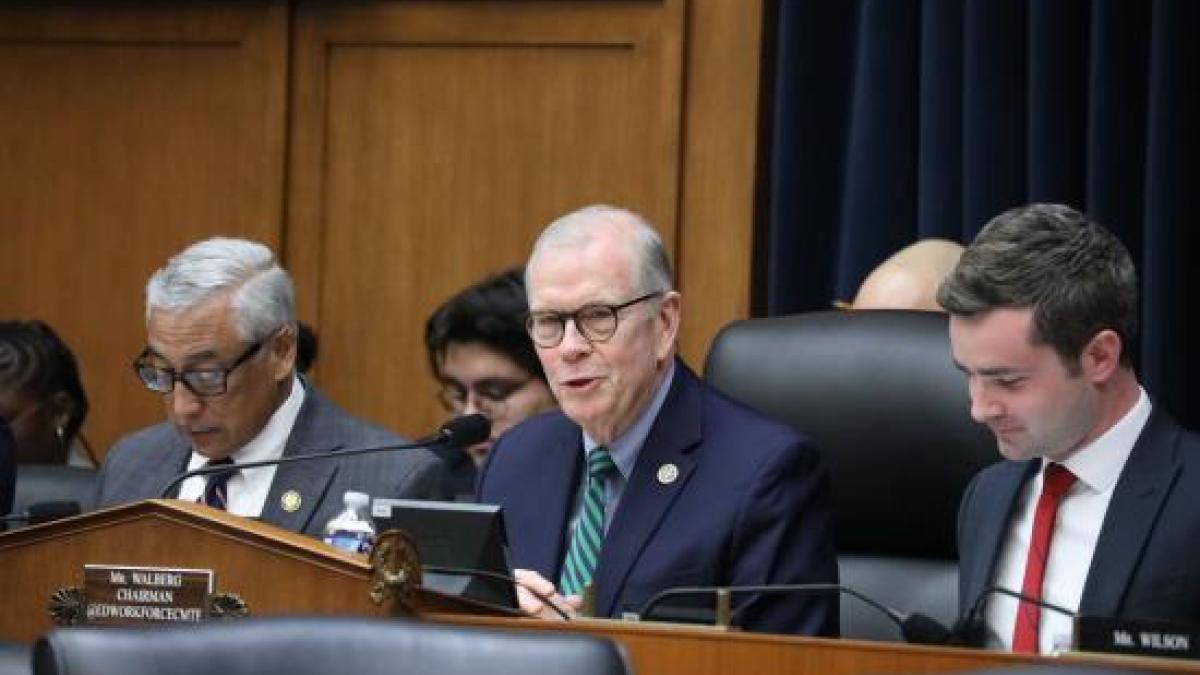Federal News Network: Committee Republicans call for investigation into federal workers’ compensation program

Top Republicans on the House Education and Workforce Committee are pushing for an investigation into the long-standing workers’ compensation program for federal employees, saying the program is particularly “susceptible to waste, fraud and abuse.”
In a letter to the Government Accountability Office on Monday, Committee Chairman Tim Walberg (R-Mich.) and Rep. Ryan Mackenzie (R-Pa.), chairman of the workforce protections subcommittee, requested a further examination into areas for reforms of the Federal Employees’ Compensation Act (FECA) program, which provides benefits to federal employees who get injured or become ill from work.
In their letter, the GOP committee leaders argued that the program is “overly generous” to federal employees. The FECA program, which dates back to 1916, hasn’t seen any major updates in over 50 years.
“For too long, bad actors have exploited and taken advantage of FECA, increasing costs and making it harder for injured workers to get the help they need,” Walberg said in a statement to Federal News Network. “It’s time to build on committee efforts to improve this outdated — yet critically important — law to help workers see qualified care providers and get back on their feet while, at the same time, rooting out the fraud that has plagued FECA for decades.”
Run by the Department of Labor, FECA handles workers’ compensation claims and covers payments for lost wages, medical services, survivor benefits and prescriptions to about 3 million federal employees in cases of work-related injuries or illnesses. But for years, various oversight reports have shown that the agency struggles with managing some aspects of the program. The administration of medical benefits in FECA has remained one of DOL’s top management challenges since 2016.
In July 2020, GAO also reported that FECA benefits for federal employees often have discrepancies with benefits from the Federal Employees Retirement System, depending on the length of a federal employees’ career and at what point during their career they sustained an injury or illness.
Additionally, a 2013 GAO report found instances of improper payments made through FECA, which appear to stem in part from issues with oversight and access to data on federal employees. The DOL’s inspector general office has also found cases where federal employees overcharged FECA for prescriptions or services, or billed the government for non-existent injuries or illnesses.
“These reports provided policymakers and the public with important context about the adequacy of FECA benefits,” the GOP lawmakers wrote in their July 14 letter.
Walberg and Mackenzie are calling on GAO to further investigate several aspects of the program — including how well DOL is conforming with GAO’s standard fraud risk framework; if DOL calculates benefits payments in a way that ensures program integrity; and how FECA’s benefits compare to some state workers’ compensation programs.
“In light of the challenges facing the FECA program, we request that GAO examine the program’s integrity, efficiency and ability meet its primary goal of safely returning employees back to the workforce,” the lawmakers wrote.
This year, bipartisan lawmakers have also been attempting to reform the FECA program through the “Improving Access to Workers’ Compensation for Injured Federal Workers Act.” If enacted, the legislation would revise FECA to allow physician assistants and nurse practitioners to treat federal employees in workers’ compensation cases — something that is currently prohibited by law.
A previous version of the bipartisan legislation passed the House in 2022, but did not clear the Senate. In the current Congress, the bill has already gained some traction. The legislation advanced unanimously out of the Education and Workforce Committee in June.
Though there have been efforts in Congress attempting to reform the more than 100-year-old FECA program, the workers’ compensation program has not undergone any major legislative changes since 1974. In 2015, a separate bill attempted to let DOL access federal wage data, in an effort to improve the integrity of FECA. But at the time, the legislation was not passed — and the bill has not been reintroduced in a decade.